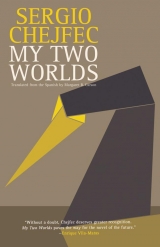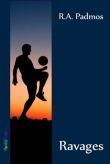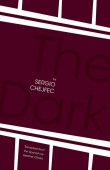
Текст книги "My Two Worlds"
Автор книги: Sergio Chejfec
Жанр:
Современная проза
сообщить о нарушении
Текущая страница: 7 (всего у книги 7 страниц)
I remembered all this sitting at my table on the terrace, as the reflection on the lake gradually darkened. I’ve been a casual viewer of Kentridge’s animated films. When I tried to get hold of one to watch at my leisure, it proved impossible. One time I managed to find a CD-ROM, but it was very costly and seems a joke, because it’s got barely forty to fifty seconds of just a few of his works. Since it was old, I needed programs that no longer exist in order to run it. When I inserted it my computer began making a brand-new noise, like a vacuum cleaner’s, that could be heard all over the house. Only after a great deal of effort and patience was I finally able to watch the disc, with the results just mentioned. In any case, though I consider myself a casual viewer of his work, and thus a mere admirer, I suspect that the recourse of the visible gaze was the initial find that allowed him to develop a good part of the rest.
I won’t expand on this too much. My hypothesis is that at a subsequent moment the artist noticed that in the dramatic world of his drawings, it was unnecessary for objects or individuals to have eyes in order to establish mutual relationships. In the end, a dotted line was able to render a relationship that was as invisible as any gaze. This has made the drawings seem subject to a process of nonstop self-generation, it’s something otherwise self-evident. It seems a world created out of geometry, and thus tending towards, or involuntarily, metaphysical. But this has also permitted a second success, I don’t hesitate to call it that, which consists in highlighting the materiality of his work, its deep and genuine artifice, because the dotted lines exhibit the intensive construction that shapes them and organizes the work. It’s a work that displays itself being made, insofar as the procedure – the lines and dots in constant transformation – is comprised in the sequential development of the stories.
From the time of this discovery, my Felix of Kentridge (put that way, he sounds like a distinguished personage or a nobleman) became my secret coat of arms. I ought to say “my Felixes,” since they take on differing personalities and are moved by different motives. For quite some time, in my private language – the unspoken one that belongs to me exclusively and which I use only in my constant mental soliloquies – to feel “like a Kentridge character” is my way of expressing the worst possible condition, the level beneath which one is unable to live. Feeling that way means being squashed to the ground, pulverized as a result of an act of vengeance of matter itself and undone until the next, but still uncertain, resurrection. Because apart from that, these characters have no moral alibi, they’re not able to escape the blame or responsibility the story itself places on them. They can only express a diffuse suffering, between physical and spiritual, although they don’t always do so, just like me. True suffering is a borrowed emotion, assigned by a viewer on seeing Felix’s face in close-up as he looks at himself in the mirror, for instance, or when thanks to the transformation of his features, he reaches old age in two or sometimes three seconds.
I felt, then, that I was in the presence a painting of a lacustrine type. The swan was looking at me head on and fixedly, and the father and daughter, though only a few meters from where I sat, pretended to be absorbed in contemplating the environs. When the waiter emerged from the building to come to me, the swan began to retreat, surely thanks to the reverse capability of the pedal mechanism. It seemed to me to be backing off in order to make a final charge, but it promptly whirled around, pointing its tail to the right, and set off at once in forward gear. The pedalinholeft the shore behind; I could now see the heads of the crew peeking out above the animal’s hindquarters, probably unaware of what they were leaving behind them. A second later, the waiter arrived and I ordered a coffee.
An intense and perhaps prolonged digression then began, from which not even the waiter himself could distract me. The swan kept getting farther away, as if this were the end of a movie, or as if the father and daughter, reconciled with the animal world after their adventure, were truly able, thanks to the kindhearted bird that transported them, to find their way back home. I then imagined the lake and that same park as the anteroom of that great continent – the green denseness composed of plant life and mystery, devourer of people and dignities, pulverizer of souls, the implacable nature I referred to earlier, etc. I remained on the side of civilization, enacting one of the most habitual of writerly scenes: seated at a table in a café, the predictable backpack with literary tools inside it, a cup of coffee or some other vague drink in front of me; that is, circumstances favorable to writing.
I could take out my notebook and start controlling the navigation of my mind in a kind of semi-public session that everyone around me – though no one was present at that moment – would expect and tolerate. But I didn’t do so, even after the waiter had already brought my order and nothing would interrupt me for a good while. The two writer friends have done it. I could even argue that those two books were written entirely in public places, almost exclusively cafés or similar locales. Why should I be any different? What circumstance keeps me from being just like them? I didn’t find the answer then, and I don’t have it now, either.
So on the one hand, I could find no reason not to set about writing in the Café do Lago, but on the other it’s true that for some time I’d begun to feel a sort of cautiousness, or insecurity, when, in one of the few cafés near my home, after certain preliminaries, I’d decide to open my notebook. I’d feel threatened, or closely observed. In fact, it was all in my head; no one was looking at me, or at anyone else. Until one afternoon, it must have been some two or three years ago, after focusing my mind on the idea of the threat – since I couldn’t get over it – while the rest of the café’s customers were reading or writing, carefree, a good number of them doubtless writers as well, I noticed that in fact something else was going on, though similar: what I felt was shame. I was ashamed to write, a feeling that still persists. And like everything shameful, if one wants to put it into practice, one has no choice but to do it surreptitiously.
For a long time I considered writing a private task, which at a certain moment nonetheless had to become public, because otherwise it would be very hard for it to stay alive, in particular and in general. My shame, though, proceeded not only from being engaged in something private in full view of everyone, but also from doing something unproductive, a thing both moderately useless and fairly banal. I felt they’d speak of me as a frivolous character, capable of squandering his time without concern, at a remove from any significant interest. And since I knew myself all too well, I had no choice but to concur with them in advance. Accordingly, my main worry wasn’t so much overcoming my faults and my foolish illusions about writing, but rather, not being discovered. That’s what life boiled down to, I could say as I approached a crucial birthday: not being discovered. All of us have one vital lie, without which routine daily existence would collapse; mine consisted of simulacra, in this case of literature.
Having so often adopted a writerly attitude, I ended up being a writer; and now, in a kind of retrospective panic, I was terrified they’d find me out, just when I was able to consider almost all the dangers cleared away. And the fear was reflected in what was most basic, as always: hands at work, the anonymous circumstance. I no longer feared not being published, or living far from success or recognition, I already knew that those things would always be within my grasp, for better or for worse; I feared that somebody, passing alongside my open notebook, would unmask me as a simple, deliberate impostor. The leaves of my notebook wouldn’t contain sentences, or even words, just drawings that sought to simulate handwriting, or repeating pages with the word “what,” especially “how,” or with disconnected syllables that never made sense.
So I kept the backpack shut, didn’t take out the book, much less the notebook, and once again passed up a session of writing that might have been fruitful, that sometimes happens, in order to sink into a diffuse meditation on the matters I’m in the process of recounting. The table was bare, except for the solitary cup of coffee. In the distance No. 15 looked like a white dot in slow flight, safe from any danger. I thought of my birthday, its charged imminence. Had my hour of reckoning arrived? With different emphases and arguments, one friend as well as the other counsel against it and refuse to take it on, though in their own way they engage in it, that I remembered pretty well. Accordingly, I thought it best to obey them.
Before my fear of being unmasked, to give it some name, café tables were promising places for me, spaces for materialization, where what was potential – poetic inspiration, literary expressiveness, whatever it may have been – used to become real. I had my protocols, like all writers, in any event not overly ambitious or complicated, after which I’d take out the notebook, read over what was most recent or maybe also what was least fresh, and after a few moments of taking stock, I’d dive into writing, without undue haste, but without distractions, either. Now my memory of those scenes is one of absolute happiness.
I wondered about the origin of that sensuality, ever-unsatisfied and ever-renewed, that led me to continue, unmindful of the interruptions, especially since writing in other places, non-public ones, say, subjected me to different experiences and feelings. I’m not talking about results, that would deserve other, less clear-cut explanations and conclusions; I mean the question of my location. The answer is grounded in my being a public writer, in a literal sense: writing in public, like a pianist who plays before an audience or a declaimer in the moment of acting. The incidentals didn’t bother me, whether or not people were looking, nor if someone was secretly peeking into my notebook. There was something of a vocational commitment in that, a kind of anxiety that was unfocused and super-concentrated at once, until, after a brief moment of compenetration between my ideas’ development and the colonized page, I would feel a slight tremor surrounding me.
Not my own tremor, the one that comes from true creation – which in any case I’ve never known – and leads one to hesitate, stumble, and at times even fall, so they say; but instead the tremor of the atmosphere surrounding me at that moment, which seemed intent on heightening the pressure in anticipation of an imminent blast, like those general quiverings which one finds difficult to ascribe to a visible source and which precede explosions or disasters in general. Yet I don’t remember those moments as ones of mounting tension, or of menace, but, rather, of harmonious waiting. The atmosphere would begin to vibrate because something was happening, though nothing sufficiently important to call the attention of those present. The vibration concerned only me and was expressed, more than in an easily recognized change or rupture, in a sort of repressed contention of things: tables, display cases, chairs, counters, everything that made up the café. Objects lost their consistency or density, though not their form, and in a second reaction, since they couldn’t explode, they became soft, springy, as if they were rubber or silicon models. Hence the reaction to the slightest current of air or of sound, expressed in a subtle, though massive, tremor that overcame the immobility of the ensemble, only to confirm it.
My two friends don’t provide any significant details about their writing moments. They’d have no reason to. In any event, both mention them, and perhaps because of an excess of loyalty, or of feelings of indebtedness toward them, I now believe I should elaborate. I was saying, then, that things would go soft and begin to tremble. These were minimal vibrations, like electric ones or maybe sonic, who knows, which reminded me a little of the particular quivering of flan, when it shakes bashfully at a touch, as if it were afraid. That was the indication that something was happening in the session; compenetration, as I said, the absence of the surroundings, but its opposite, too, because it pertained to a private scale, my own scale of equilibrium or coexistence with the “publicness” I sought to attain. That is to say, what surrounded me was turning into a copy, it was a soft reality or soft version capable of including me. An anonymous scribe in a café governed by the murmurs of the congregation and the irritating sounds of the cups and dishes clattering behind the counter. Sometimes, if the things didn’t go soft they could change color; barely a tinge, the next shade on the gray scale, which upset everything uniformly. .
Contrary to the past, I was now sure that if I started writing in the Café do Lago nothing would tremble or change around me. Maybe that was the proof or the warning that I was going to be discovered and unmasked, I mean, that reality was no longer in solidarity with my activity, no matter what my compenetration; anyhow, I don’t know, but what’s certain is it ended up being my reason to feel a certain nostalgia for that past without cares or, more precisely, without fears. People were entering the terrace of the café and stopping to look at the lake, at the stand of leafy trees clustered to one side, they were even looking insistently toward where I sat, probably intrigued by this solitary and fairly unknown man. My dream, to be a nobody, a secret writer again, once more attained. .
On the lateral path that led to the café, and that went on behind it to one of the park’s exits, people would pass by every now and then, strolling along. At one moment it seemed to me that one of those people was the old man from the fountain, though at that moment I wasn’t able to confirm it, a doubt that stays with me to this day. He walked without lifting his feet much, and so seemed to be dragging them, which I interpreted as a new sign of his definitive tiredness. For a moment I had a contradictory thought, that perhaps he was walking barefoot, because of a forgetfulness on waking hadn’t put on the shoes he’d left to one side under the bench. I thought of going to retrieve them and then pursuing him to give them back.
Nevertheless, without deciding on doing anything, I sat contemplating the lake, which at that hour, nearly dusk, displayed a stillness that verged on the inert. I realized I could adopt for good the habit of visiting the Café do Lago to see the waters; or that I could run to inspect the bench beside the fountain, and in the event I found that gentleman’s footwear, pursue him until I’d returned it. From that point on another story would develop, first of all a half-mysterious dialogue plagued by confusions, half-words and suspicions. The old man would tell me the story of his life without my having inquired, mixing political opinions and bitter commentary on his children or his niece and nephews.
And in this man’s intention, more than in anything else, I would see myself reflected, better yet, I would feel myself interpreted. I said before, describing our encounter by the fountain, that he resembled me, or conversely, I resembled him; that we could even be the same person at different points in time. A specter from the future, an eloquent warning, but of unclear significance, aside from his zeal for walking.
What I want to say now is, as almost always, crisscrossed with imprecision. There on the terrace of the Café do Lago I ruled several things out, but I found myself in a kind of disjunctive: stay seated or run after the old man. It didn’t occur to me to think that the following day I’d be going back to my country, dozing on the trip like the rest of the passengers. Immobility, waiting, and all related situations, on the one hand, and actions and exchanges with one’s neighbor, on the other. I was searching for the delicate boundary between the two parts, as if I lived under protest in each of the two worlds. Needless to say, as has happened to me on other occasions, I arrived at no lasting conclusion, much less a self-evident one. As a disjunctive it was undoubtedly middling, but it seemed to be the only one to which I could aspire.
In general, I know that when speaking of private and opposing worlds, one tends to refer to divided, sometimes even irreconcilable facets of personality or of the spirit, each with its corresponding secret value and its psychological, metaphysical, political or simply practical – or even pathological – content. But in my case there was neither a moral nor existential disjunctive, what was more, I saw that my two worlds weren’t separated in an equal or reciprocal way; neither did one world linger in the shadows or in private as the flip side of the other, the visible one, who knows which; nor would they seek to impose themselves over the other or to merge as one, by force or not, as tends to occur in these cases. Nothing of the sort; they seemed a nearly abnormal example of coexistence, of adaptive tendency and of absolute absence of contrasts. I took all this into consideration, and it seemed worrisome and insoluble. . But an instant later I resigned myself, thinking that when all was said and done I ought to bow to these conditions, because just as we cannot choose our moment to be born, we also know nothing of the variable worlds we’ll inhabit.
AUTHOR BIO
Sergio Chejfec, originally from Argentina, has published numerous works of fiction, poetry, and essays. Among his grants and prizes, he has received fellowships from the Civitella Ranieri Foundation in 2007 and the John Simon Guggenheim Foundation in 2000. His books have been translated into French, German, and Portuguese. He teaches in the Creative Writing in Spanish Program at NYU, and My Two Worldsis his first novel to be translated into English.
TRANSLATOR BIO
Margaret B. Carson translates contemporary poetry, fiction, and drama from Latin America. Her recent translations include Virgilio Piñera’s “Electra Garrigó” and Griselda Gambaro’s “The Camp,” published in Stages of Conflict: A Critical Anthology of Latin American Theater and Performance. She teaches in the Modern Languages Department at Borough of Manhattan Community College.
ABOUT OPEN LETTER
Open Letter – the University of Rochester’s nonprofit, literary translation press – is one of only a handful of publishing houses dedicated to increasing access to world literature for English readers. Publishing ten titles in translation each year, Open Letter searches for works that are extraordinary and influential, works that we hope will become the classics of tomorrow.
Making world literature available in English is crucial to opening our cultural borders, and its availability plays a vital role in maintaining a healthy and vibrant book culture. Open Letter strives to cultivate an audience for these works by helping readers discover imaginative, stunning works of fiction and by creating a constellation of international writing that is engaging, stimulating, and enduring.
Current and forthcoming titles from Open Letter include works from Catalonia, China, Czech Republic, Poland, Russia, and numerous other countries.
www.openletterbooks.org






